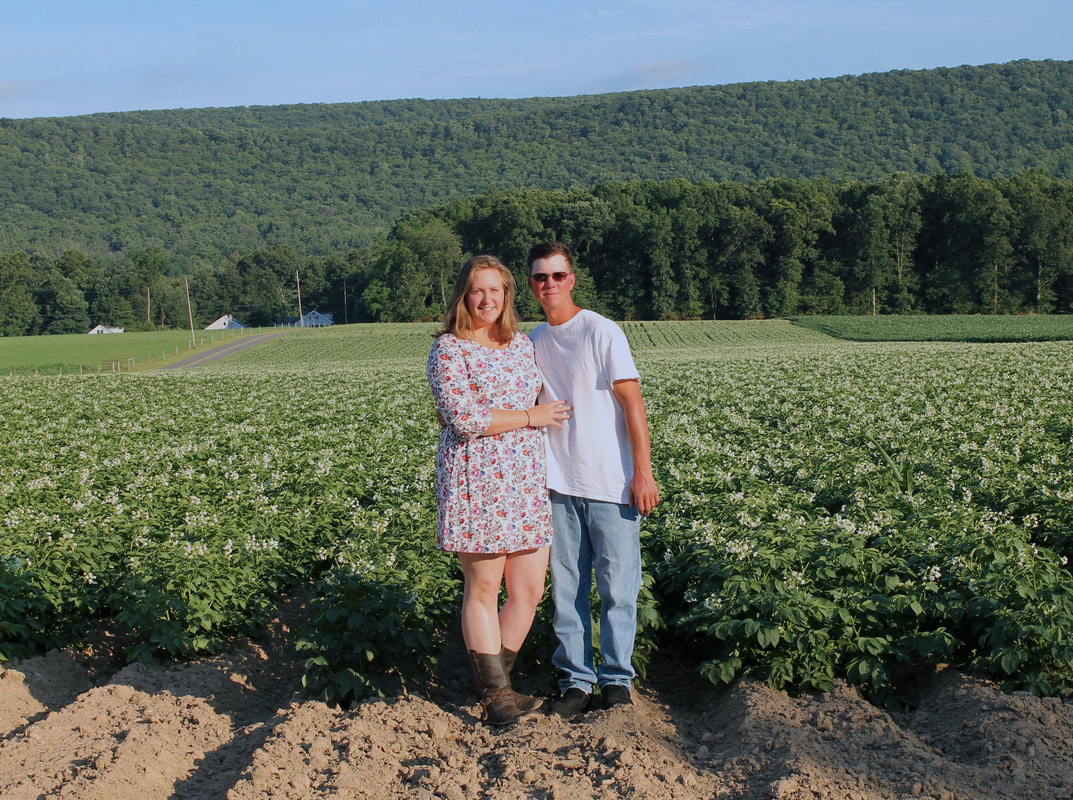During a dry year, we are fortunate to have access to a water source. As long as there are not extremely strong winds along with a drought (which did happen two years ago), we are able to successfully irrigate crops that need moisture the most. It is always better to be able to control the amount of water on your land to a degree, rather than let Mother Nature dictate. However, in farming you only have so much control...which is apparently also true in life...? Who knew! During a wet year, flooding is the most obvious issue. Entire acres of crops can be simply washed out of the ground after a single rainfall. And if that water happens to lay in certain areas for extended periods of time without evaporating, the roots of whatever crops remain will begin to rot. Then come the bugs. This year we can hardly walk outside without getting attacked by mosquitoes and sweat bees. Japanese beetles are everywhere, eating everything. All of us are just giant walking bug bites at this point. Then, diseases set in. When the humidity sticks around, it encourages diseases like blight on tomatoes and potatoes.
Over dinner the other night, Mark and I were commiserating (and laughing) about how since we got married, we've experienced both one of the driest years on record and now, the wettest. When a farmer gets married, the ceremonial vows should also include, "In sickness, health and all types of weather," But here we are, still going strong, soldiering on through August, gearing up for the wet mess of potato harvest to come. A year like this makes us even more grateful for each other.
It doesn't look like we're going to have much of a pumpkin crop this year, but I am still more than ready for autumn to swoop in and save me from summer's wicked grasp. Give me a flannel shirt and some heavy boots, baby - this farmgirl is ready to kiss the humidity goodbye! But we still have a ways to go before jacket weather. The buckwheat is just about to blossom, so our bees will soon be descending on it. I've been enjoying listening to them in the early mornings as we pick beans, buzzing calmly in the sweet corn tassels behind us. The canning saga of 2018 is in its final stages; I did one round of sauce last week, and this week plan to bust out some ketchup before every last tomato turns to mush in our fields. This year may be a major bummer, but we're still going to make the most out of it. There's always next year, right?

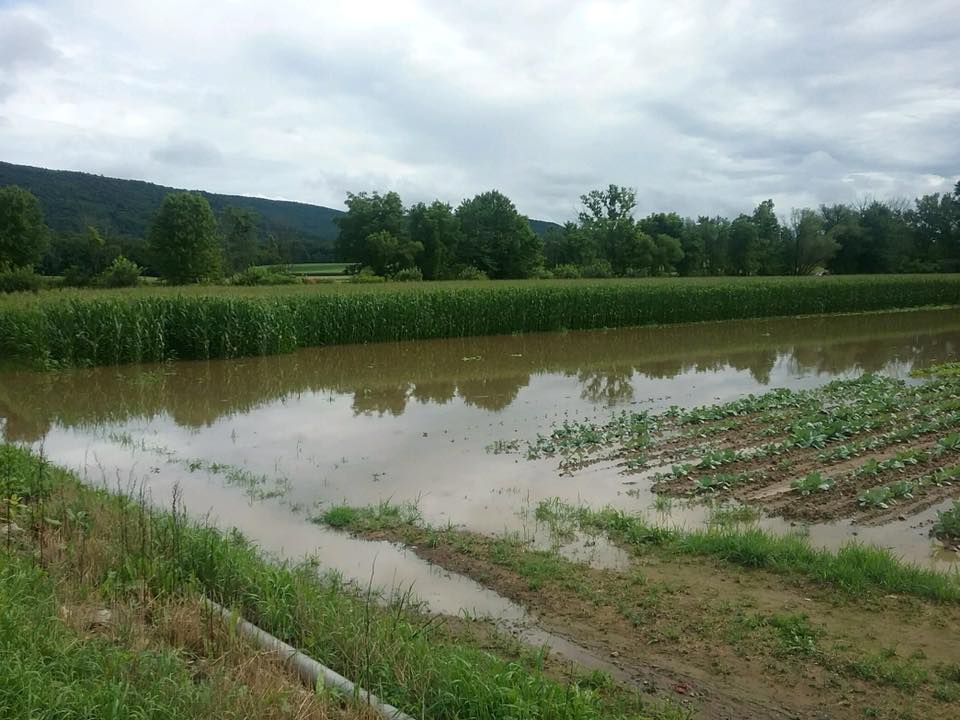
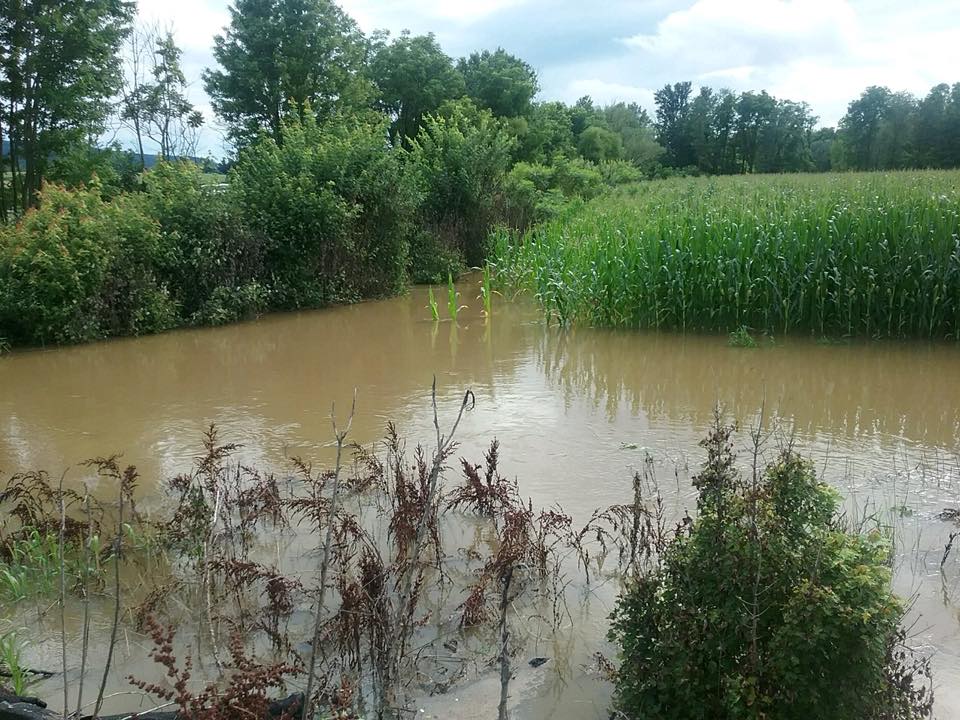
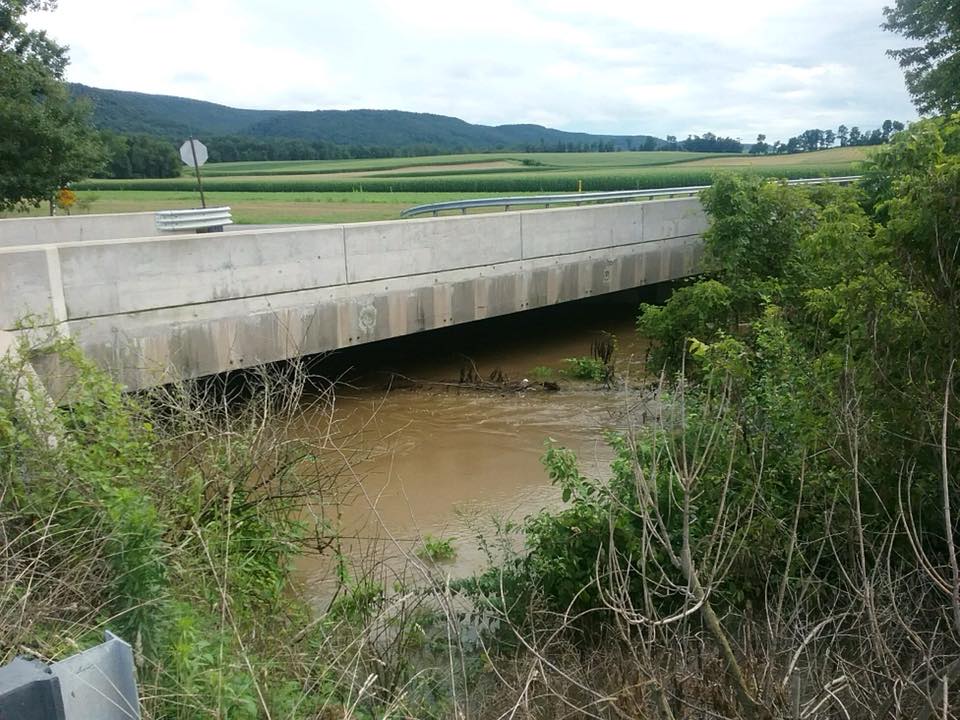
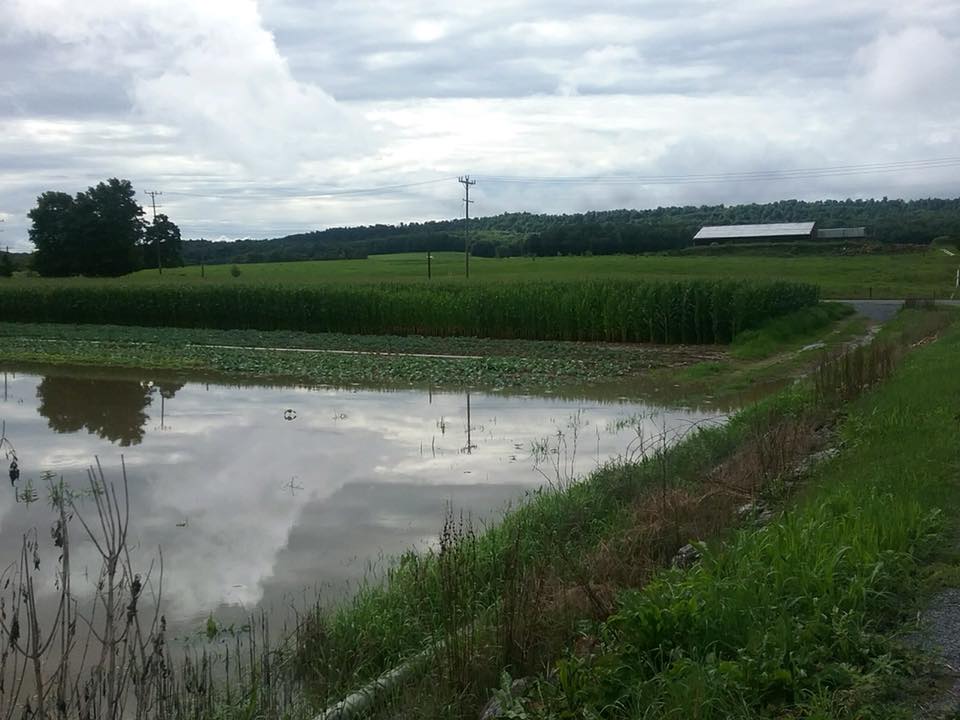
 RSS Feed
RSS Feed
